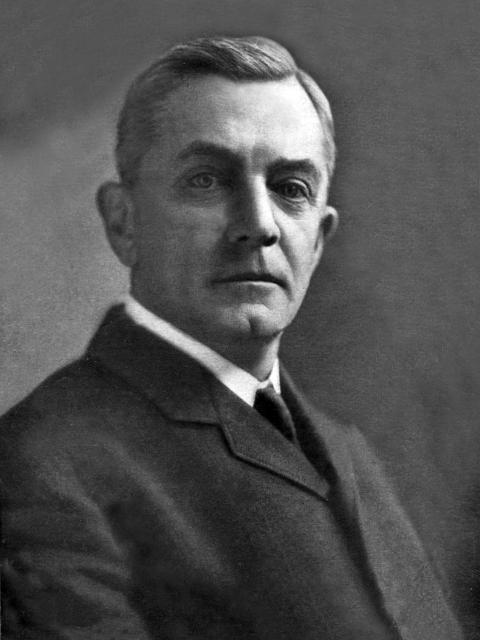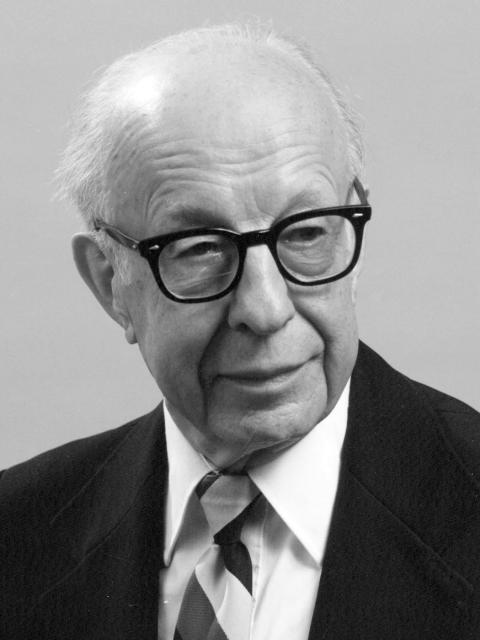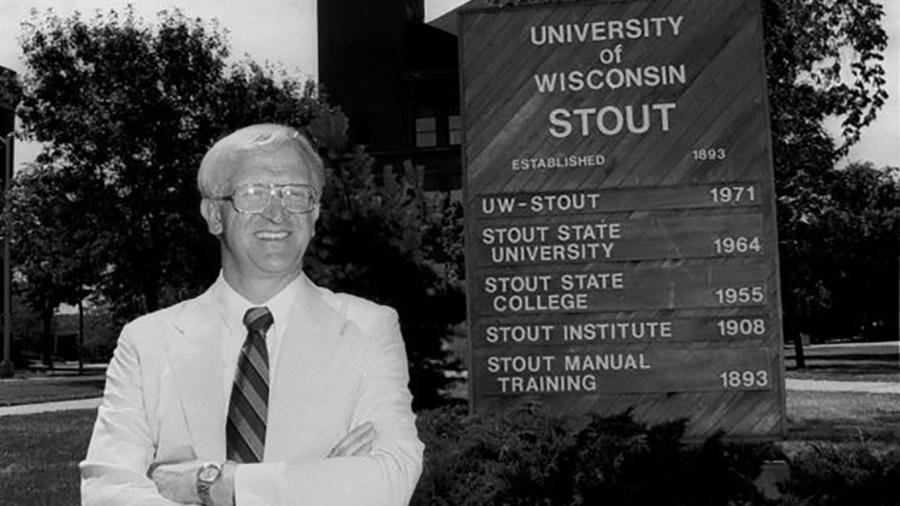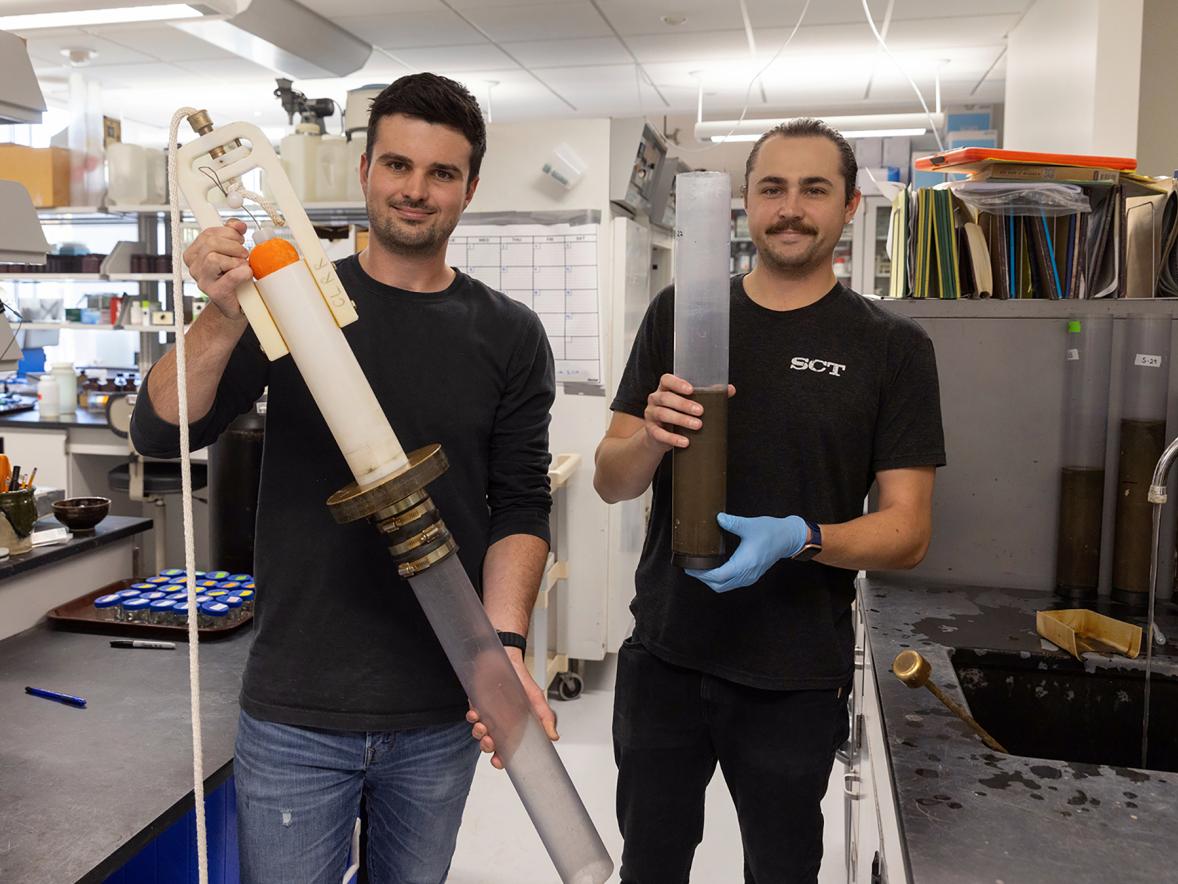Fifty years ago, the school now known around the state and country as University of Wisconsin-Stout — named after its founder James Huff Stout — almost lost a major part of its identity.
When a bill was signed by then-Gov. Patrick Lucey and became law between Oct. 8 and Oct. 12, 1971, the University of Wisconsin System was formed, merging two state higher education systems. The UW System marked the anniversary at its recent Board of Regents meeting and in an Oct. 12 news release.
As part of the merger, schools took on new names after the cities in which they are located, such as UW-Superior and UW-Whitewater. The schools’ locations generally had been part of their names since their inceptions, making the transition sensible.
The problem: UW-Stout was an outlier. Over the years it had been named Stout Manual Training School, Stout Institute, Stout State College and Stout State University — always with the founder’s name and never the school’s location in Menomonie.

It was founded in 1891 as a private institution, part of the national manual training movement, by the local businessman and philanthropist. When James Stout died in 1910, his wife, Angeline, agreed to donate the school to the state, which took over in 1911.
Thus, 60 years after the state takeover, as the 1971 merger moved ahead, the state had a small problem: What should it do about the name of the school in Menomonie?
How close did UW-Stout come to being named UW-Menomonie, or something else?
Following is an excerpt from “An Idea Comes of Age: UW-Stout 1891-2016,” a history book published by the university to mark its 125th anniversary.
UW System merger
The UW System was created Oct. 11, 1971, when the state’s two public university systems merged under one Board of Regents. The bill passed by one vote in the state Senate. It took nearly another three years, until July 9, 1974, to finalize the merger under a new Chapter 36 in the state statutes, with the two systems operating separately until that time.
The two systems were the University of Wisconsin and the Wisconsin State Universities. The former included UW-Madison, UW-Milwaukee, UW-Green Bay, UW-Parkside, UW-Extension and 10 two-year colleges. The latter included the nine state universities that began as normal schools, such as Platteville, Stevens Point, and Eau Claire, along with Stout State, and four two-year colleges.

With the merger, the UW System became the third largest higher education system in the nation with more than 133,000 students, behind only New York and California.
The goal of the merger was to make public higher education in Wisconsin more efficient, more fiscally responsible and more accountable to the state and to state taxpayers.
The merger raised many questions and concerns at campuses around the state, including at Stout State University. About three weeks before the merger bill passed, Stout State President William “Bud” Micheels was interviewed by a reporter from the Milwaukee Journal and explained that outlying campuses such as Stout feared being overlooked in the big system and losing their identity.
“I have certain trepidations in regard to the conversion. I am thinking about a neighboring state with which I am familiar in which the campuses have a rubber-stamped concept. We do not want to become rubber-stamped, second-line satellites,” he said, making a veiled reference to the University of Minnesota, where he taught before coming to Stout State.
Micheels added, however, “We don’t expect this will happen. I have been trying to reinforce to students and alumni who happen to be on campus this semester that we will not be lost. Here at Stout we have uniqueness and strong tradition in terms of our specialties. We expect that this will be continued under the merger.”

For the first time in its history, the school started by James Stout officially was part of the University of Wisconsin, the university system on whose Board of Regents he once served.
As the merger bill moved forward in the spring of 1971 and passage appeared imminent in the fall, a new concern arose in Menomonie. What would Stout State University be called?
The merger bill indicated that the state universities would be renamed University of Wisconsin, followed by a hyphen and the name of city in which they were located. Did that mean Stout would be dropped from the school’s name for the first time in its history and it would be known as University of Wisconsin-Menomonie?
Not if Micheels and others at Stout State had anything to say about it. And they had a lot to say.
Stout was a special case — the only school involved in the merger named for a person and not a place. Arguments were made that the word Stout should remain in the school’s name out of deference to its founder, that the state previously had made special exceptions to keep Stout in the school’s name during name changes in 1955 and 1964 and that the school’s state, national and international brand built over 80 years would suffer irreparable harm should the Stout name disappear.
Less than two weeks before the merger passed, Micheels said the university would be proud to be associated in name with the University of Wisconsin but that he was leaning toward trying to retain name Stout State University, with a subtitle so that the full name might read, “Stout State University, a unit of the University of Wisconsin at Menomonie.”
Stout State’s concerns were heard. When the merger bill passed in the Legislature, two amendments were introduced that said the school should be called UW-Menomonie, but they were defeated.
Thus, every other public university in the state had a new name but Stout and the University of Wisconsin, which was not required to affix Madison to its name.
The name game lasted less than one month. On Nov. 5, 1971, the UW System Board of Regents unanimously passed Resolution 14, which designated the official name for each university.
Stout State University would become University of Wisconsin-Stout.
The issue was settled, but Micheels and others still weren’t happy about it. Five days later, Micheels wrote to Leonard Haas, vice president of the UW System, about several merger issues, including the name change approved in Resolution 14.
“I want to be on record that I was not consulted with respect to the name. I did suggest a name, but apparently this was overruled, by whom I do not know. At this point, I do not want to suggest a change, but I want to be definitely on record with the thought that a modification of the name (University of Wisconsin-Stout) may be desirable.”
Three months later, with Micheels on medical leave, acting chancellor Ralph Iverson carried the torch for Micheels, writing to UW System President John Weaver. He raised the same issues.
“In using the name (University of Wisconsin-Stout) for outside communications, we feel that irreconcilable difficulties are imposed upon us. The results could be a loss in enrollment and placement opportunities for our graduates,” Iverson said.
He suggested, as did Micheels, that school’s name be changed to the cumbersome “Stout University, a member of the University of Wisconsin System.” “I am asking for your support in obtaining some form of modification of the name.”
The support never came.
UW-Stout still supporting founder’s mission
Today, 50 years after the merger, the name UW-Stout is the most used in the school’s 130-year history, surpassing Stout Institute, which was used for 46 years beginning in 1908.
No further modifications to the name have been sought, other than when the school received the System’s approval in 2007 to additionally be designated as Wisconsin’s Polytechnic University.
While the UW-Stout name doesn’t indicate where it exists within Wisconsin, Chancellor Katherine Frank concurs with Micheels’ opinion a half-century ago that the name is respectful of the founder; helps set UW-Stout apart as a distinctive institution within the UW System, regionally and nationally; and ultimately represents the school’s historic and ongoing mission.
“James Huff Stout was a visionary leader. His idea to start a manual training school has grown into a respected, award-winning polytechnic university with more than 70,000 proud UW-Stout graduates who have helped move our region, state, nation and world forward,” Frank said. “We continue to honor that vision today with a dedication to his founding mission, a focus on applied learning, high-level engagement with business and industry and well-rounded graduates who are ready to begin their careers.”
###







